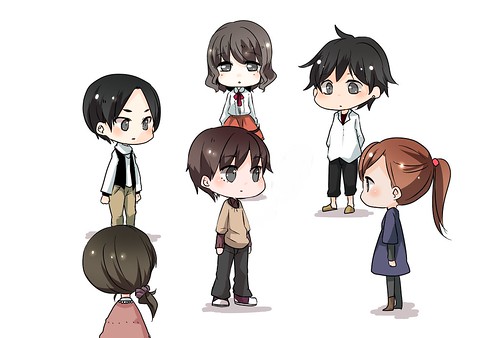Privileges Versus Privileges

flickr photo shared by timtak under a Creative Commons ( BY-NC ) license
Introduction
Have you ever felt like you are better or more talented and privileged than other people? Do you feel there are unconscious ranks developing in groups (school, friends…) in which the more “good looking, wealthy and famous” get more attention? Do you see these ranks developing? Do you see how many privileges you have? Are you ashamed of them?
In his book “Sitting in the Fire”, Arny Mindell, defines rank as “the sum of a person’s privileges”. Privileges refer to one's relative benefits and advantages. He also says that it is “a conscious or unconscious, social or personal ability or power arising from culture, community support, personal psychology and/or spiritual power.” Whether you earned or inherited your rank, it informs much of your communication behaviour. The four types of rank:
Social rank - stems from race, gender, sexual orientation, social class, religion, education, health, age.
Psychological rank - comes from feeling secure and cared for. It also comes from surviving through suffering and as a result feeling stronger and more compassionate. May come from awareness, self-knowledge, inner work or self-esteem.
Contextual rank - comes from a particular situation / context / locality in which a situation occurs (workplace, school, family, sport team…).
Spiritual rank - is independent of culture, family and the world. Comes from having “justice on your side”. Also from a connection with something transcendent that guides you and keeps you centered even in a storm (e.g. Nelson Mandela, Mother Theresa, Martin Luther King Jr., Wangari Maathai). It sometimes frees a person from the worries that plague/block others.
We can’t ignore the impact of ranks and privileges in our lives and how they make us feel. However, we can be aware of rank dynamics and use differences of power and privilege for our mutual growth and learning. In interaction, rank is really a fluid process asking for our awareness. The sense of power flips quite rapidly between people from one moment to another, as different kinds of powers are processed and experienced.
Example you might know from school:
“I have bad marks and hate studying.” ⇒ I feel a mix of low contextual and social rank.
“And I love sports, especially gymnastics and I feel admired for it.” ⇒ I feel a mix of high contextual and social rank.
How do you think this makes others and yourself feel?
In this exercise participants will reflect on their own rank within a certain relationship, get to know it and share it.
Activity Type
Individual or Group / Experiential or Theoretical
Duration
2 hours
Learning Outcomes
To become aware of the personal privileges, power, influence, disruption one brings into a group, relationship/interpersonal dynamics (e.g. family and friends circle)
To be more aware of how others might feel and better use your own personal power
Get to know, accept and then share your rank and privilege
Instructions
Step-by-Step Instructions:
Divide the group into pairs or groups of 3.
Think about a relationship with another person in your life within the context of the different types of rank. Briefly share this with your partner/group.
Explore and write down insights about the rank complexity in this context with the help of your group. Consider each of the four ranks separately (social, psychological…).
Discuss and agree on the differences of these four ranks and how they influence your relationship. [Allow 15 minutes for these steps.]
Where do you currently have higher or lower rank within your relationship? [Allow another 5 minutes for this step.]
Having done this, switch to the next person in the group and allow another 15-20 minutes.
Come together in a big group again. Open a discussion guided by the following questions (see the Reflection section at the end of this activity), putting down keywords or themes on a flip chart for everyone to see.
Get back into your small group again and look around. Have you just met or have you known each other for a longer time? Discuss your individual rank in relation to the other group members. [Allow 10 minutes per person], then switch.
Group-reflection: Now come together in the big group again. What has surprised you around exploring ranks. Has it become clearer? Specifically, share around the last two questions in the big group. [Allow minimum 10 minutes for this step, let people express themselves and make them heard.]
Resources
Reflection
Which privileges are difficult to “recognise” or “accept” as your own? Do you feel ashamed, guilty or uncomfortable with these privileges and how does it make you feel? How do you express it?
In what way could you use your higher ranks in these situations to help you in interacting with others?
In which situation can you see yourself using your high rank unconsciously?
When do you see signs of low rank in interactions? How do they manifest?
Do you think there is any connection between rank, abuse and revenge? If yes, of what kind?
How can you use and share your high rank to empower people that have a lower rank in a certain area?
How can you learn from and cooperate with people of higher rank in a specific area in which you are low ranked?
Instructions for Submission
Submit a short text based on your reflection (up to 200 words). Instructions on how to submit things in Moodle can be found here: Instructions on Submission&Uploading
Instructions for Assessment
Provide feedback to at least one participant that has done this activity. Instructions on providing feedback can be found here: Instructions on Feedback
Related Topics
Conflict transformation
Power, ranks and privileges
Roles
Abuse and revenge